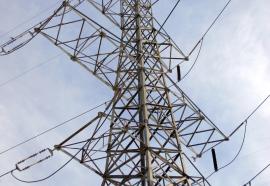Green Power Control
Preparing the grid for large-scale renewables.
With large solar arrays and wind farms being proposed to connect to transmission and sub-transmission systems, are utility companies sufficiently prepared to handle the challenge of integrating these large intermittent resources? The industry now must decide whether transmission reliability factors — most notably dynamic voltage support and system frequency management — need to be resolved by renewable generators, or whether they should become a cost of doing business for transmission providers and reliability coordinators.











